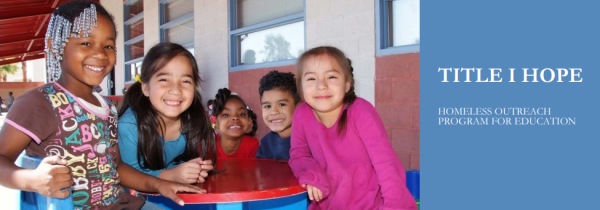Clark County School District really cares about its students. It started the Title I HOPE, or Homeless Outreach Program for Education, which is all about having kids stay well educated even if they aren’t in a good financial place.
Title I HOPE dedicates itself to removing the barriers for homeless students to enroll in school and educating school personnel, parents, and unaccompanied youth on the educational options under McKinney-Vento federal law.
Ethan Jordan, sophomore, states, “The program is a great thing, it helps children struggling get an education.”
The McKinney-Vento Homeless Assistance Act defines children as living almost anywhere but a house. This includes living with friends because of hardship, living in a motel, hotel, or RV park, living in a shelter, living in a car, park, campsite, or on the street.

UHY or Unaccompanied Homeless Youth is where a homeless child is living without a legal parent or guardian. UHY is usually found couch surfing or living in areas that wouldn’t normally be considered safe. It is the school’s responsibility to enroll and educate UHY by the McKinney-Vento Act and to determine program eligibility based on the nighttime living arrangement, not the circumstances that caused them to abandon their household.
Noah Wong, freshman, says, “I believe it’s a great cause, it helps children in need who aren’t in good environments live a better and healthier life.”
School of origin is defined as the school the child or youth attended when permanently housed or the school in which the child or youth was last enrolled. A homeless student may attend a school of origin for the entire duration of the homelessness or until the end of any school year in which the student becomes permanently housed. Students wishing to attend School of Origin must submit a request to the HOPE office. The placement of students experiencing homelessness will be based on the student’s best interest.
Research and data indicate that experiencing homelessness can have serious negative effects on children academically, socially, and emotionally. Homeless students experience greater school mobility, which can cause problems to a child’s education and are associated with lower school achievement and increased risk of dropping out of school, are at a greater risk of being absent, and face huge gaps in graduation rates.

Wong continues, “Kids who aren’t raised in good environments sometimes make choices they regret in the future, especially kids who drop out and wish they got an education while they had the chance. I’m sure this program has already helped so many children in need who were in horrible conditions change their life.”
All someone needs to do is go to a CCSD center or school and ask about it. The staff there will then make some calls and the child should then be administered into the HOPE program.








